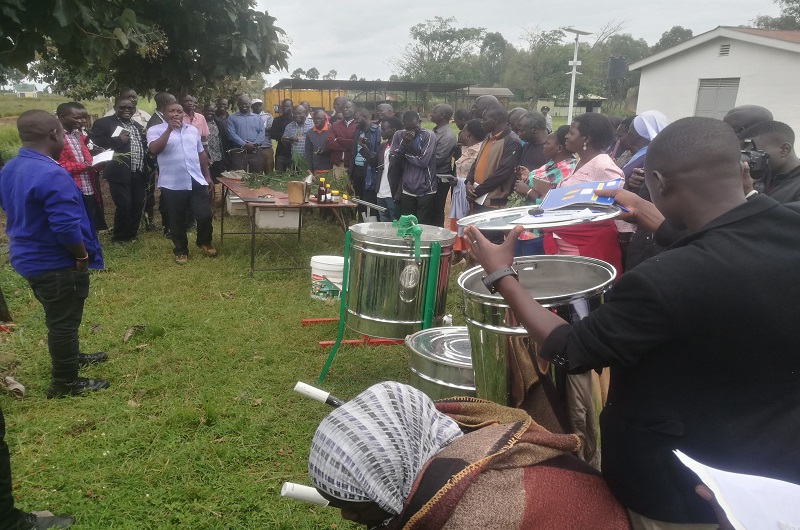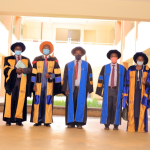West Nile educators have participated in a two-day training program focused on the practical implementation of the newly revised lower secondary school curriculum (LSSC). Over 50 headteachers and agriculture teachers from 24 secondary schools in the region attended the training, which was conducted by the Ministry of Education in collaboration with the NARO Abi Zonal Agricultural Research and Development Institute (Abi ZARDI). The training, which took place at NARO Abi ZARDI in Arua City on Wednesday and Thursday, emphasized best agricultural practices.
During the training, participants were provided with demonstrations showcasing how Abi ZARDI’s facilities and resources could be utilized to support practical and project-based teaching and learning in alignment with the new LSSC. Additionally, the attendees had the opportunity to visit agricultural demonstration sites at Muni National Teachers’ College (NTC) and Muni Girls’ Secondary School, with the aim of replicating similar projects in their own schools.
The newly revised LSSC is designed to equip students with employable skills, making them more competitive in the job market. Ronald Ddungu, Principal Education Officer and LSSC desk officer for West Nile and Acholi regions, highlighted the importance of practical and relevant education. Ddungu mentioned that the curriculum had been adjusted to address concerns and ensure that graduates can effectively contribute to their communities.
The training, which involved 24 selected government schools in West Nile, focused on training teachers who will later serve as trainers for additional schools. The goal is to transform these schools into model institutions for the region.
Education officials are pleased with this initiative, emphasizing the importance of agriculture in the country’s economy and its role in achieving Sustainable Development Goals. While not a compulsory subject, the officials believe that schools should embrace agricultural education, particularly through establishing school gardens to reduce food procurement costs.
Apollo Rokoni, an agriculture teacher, expressed his appreciation for the training, as it provided much-needed refreshment in light of the new curriculum. Rokoni also discussed plans to revitalize the school fish ponds and enhance fish and poultry management, thanks to the skills acquired during the workshop.
Grace Adia, the headteacher of Arivu SS, highlighted the training’s significant benefits for educators and learners, especially in the context of the hands-on new curriculum.
Muki Isaiah, the headteacher of Francis Ayume Memorial Secondary School, and other educators expressed their readiness to launch agricultural projects immediately, leveraging their newfound knowledge.
Dr. John Walakira, the director of research at NARO Abi ZARDI, encouraged the West Nile community to embrace the program and emphasized its role in connecting agricultural technologies and practices to local communities, addressing the existing gap in technology transfer.




















